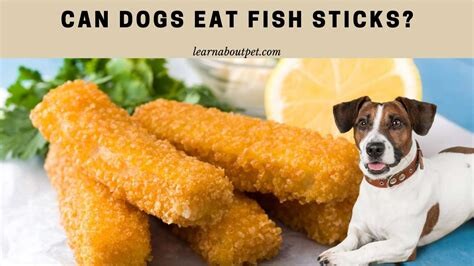Understanding the Nutritional Needs of Dogs
Understanding the nutritional needs of dogs is essential for every dog owner. Dogs, just like humans, require a balanced diet to maintain good health and overall well-being. Providing proper nutrition is one of the main responsibilities of being a dog owner, as it can significantly impact your pet’s energy levels, immune system, and overall lifespan.
When it comes to feeding dogs, it is important to consider their age, size, breed, and any specific health conditions they may have. Puppies, for example, require a diet that supports their growth and development, while senior dogs may need a diet that caters to their aging bodies. Different breeds may also have unique nutritional requirements.
To ensure that your dog receives the necessary nutrients, a balanced diet consisting of proteins, carbohydrates, fats, vitamins, and minerals is crucial. Proteins are essential for muscle development, while carbohydrates provide energy. Fats, on the other hand, help with nutrient absorption and provide a concentrated source of energy.
Providing dogs with the right vitamins and minerals is equally important. Vitamin A is vital for vision and immune system health, while vitamin D helps with calcium absorption and bone strength. Minerals like calcium, phosphorus, and zinc play crucial roles in maintaining healthy bones, teeth, and overall growth.
In order to maintain a healthy and balanced diet, many dog owners opt for commercial dog food. These products are formulated to meet the nutritional needs of dogs and often provide the necessary vitamins and minerals. However, it is important to carefully read the labels and choose high-quality dog food that contains real meat as the main ingredient. Avoid products that contain fillers, artificial flavors, and preservatives.
Alternatively, some owners prefer to feed their dogs a homemade diet. While this can provide more control over the ingredients, it is essential to consult with a veterinarian or a pet nutritionist to ensure that the diet is balanced and meets all of the dog’s nutritional needs.
In conclusion, understanding the nutritional needs of dogs is crucial for their overall health and well-being. Whether you choose to feed your dog commercial dog food or a homemade diet, providing a balanced and nutritious meal is vital. Regularly consulting with a veterinarian can also be beneficial in tailoring a diet specifically to your dog’s individual needs. By giving proper attention to your dog’s nutrition, you can help them lead a long, healthy, and happy life.
Exploring the Ingredients in Spam
When it comes to understanding the nutritional needs of our furry friends, it’s crucial to pay attention to what we’re feeding them. One popular but controversial choice is Spam – a preserved meat product that has gained popularity in many households. But have you ever stopped to think about the ingredients in Spam and their potential impact on your dog’s health?
Let’s take a closer look at the ingredients in Spam to evaluate its suitability for our canine companions. The first ingredient in Spam is pork, which provides a significant amount of protein. Protein is essential for dogs as it helps to build and repair tissues, supports a healthy immune system, and provides energy. However, it’s worth noting that the specific origin and quality of pork used in Spam may vary, which can impact its nutritional value.
In addition to pork, Spam contains other ingredients such as salt, water, potato starch, and sugar. While salt and sugar can enhance the taste of the product, they should be consumed in moderation by dogs. Excessive salt intake can lead to dehydration and sodium ion poisoning, while too much sugar can contribute to weight gain, dental issues, and even diabetes. It’s important to read the nutritional labels carefully and consider the overall balance of ingredients to make an informed decision.
Listed below are the main ingredients found in Spam:
| Ingredients |
|---|
| Pork |
| Salt |
| Water |
| Potato Starch |
| Sugar |
While Spam may contain some beneficial ingredients, it’s essential to evaluate the overall nutritional profile and consider it as an occasional treat rather than a staple in your dog’s diet. Moderation is key. Even though dogs are carnivores, their diet should consist mainly of high-quality dog food formulated to meet their specific nutritional needs.
Exploring alternatives to Spam can also be a wise choice when it comes to treating your furry friend. There are numerous healthy and safe options available in the market specifically designed for dogs. From natural meat-based treats to specially formulated dental chews, these alternatives can provide a balanced and nutritious reward while promoting optimal health.
It’s always advisable to consult with a veterinarian for dietary advice tailored to your dog’s individual needs. Each dog is unique, and factors such as age, breed, size, and any existing health conditions should be considered when making decisions about their nutrition. Your veterinarian can guide you in selecting the most appropriate diet and treats for your beloved pet.
Evaluating the Safety of Feeding Spam to Dogs
When it comes to feeding our furry friends, it’s important to be cautious and aware of what we’re giving them. Certain human foods can be harmful or even toxic to dogs, and one particular food that often raises questions is spam. You might be wondering, is it safe to feed spam to dogs? Let’s dive into this topic and evaluate the safety of feeding spam to our beloved four-legged companions.
First and foremost, it’s essential to understand what spam is made of. Spam is a canned meat product that typically contains pork, ham, salt, water, sugar, and various other flavorings. While it may be safe for human consumption in moderation, it may not necessarily be the best choice for our canine companions.
Feeding dogs spam can pose several potential risks and health concerns. One of the main issues is its high salt content. Dogs have different nutritional needs compared to humans, and excessive salt intake can lead to dehydration, electrolyte imbalances, and salt poisoning in dogs. Additionally, the high fat content in spam can contribute to obesity and pancreatitis in dogs, both of which can have severe consequences on their overall health.
It’s important to note that every dog is different, and their tolerance to certain foods can vary. While some dogs may be able to handle small amounts of spam without any issues, others may experience digestive upset, including diarrhea, vomiting, or even allergic reactions. Therefore, it is crucial to monitor your dog closely if you decide to include spam in their diet and observe any signs of discomfort or adverse reactions.
So, what are the alternatives to spam for dogs’ treats? There are plenty of safe and healthy options available that can satisfy your dog’s taste buds without compromising their well-being. Opting for natural and dog-friendly treats such as carrots, apples, or pieces of cooked chicken can provide a healthier and more balanced alternative to spam. Always remember to introduce new foods gradually and in moderation, paying attention to your dog’s individual needs and dietary restrictions.
In conclusion, while it may be tempting to share our favorite foods with our furry companions, it’s crucial to prioritize their safety and well-being. When it comes to feeding spam to dogs, the risks associated with its high salt and fat content make it an unfavorable choice. With so many healthier alternatives available, it’s always better to consult with a veterinarian and ensure that your dog’s diet meets their individual nutritional needs. Remember, keeping our dogs happy and healthy should always be our utmost priority.
| Potential Health Risks of Feeding Spam to Dogs: |
|---|
| 1. High salt content can lead to dehydration, electrolyte imbalances, and salt poisoning. |
| 2. High fat content can contribute to obesity and pancreatitis. |
| 3. Dogs may experience digestive upset or allergic reactions. |
Potential Health Risks of Dogs Consuming Spam
When it comes to our furry friends, we always want to make sure we are providing them with the best nutrition possible. Dogs are known as our loyal companions, and it is our responsibility to take care of their health and well-being. However, there are certain foods that may pose potential health risks to our dogs, and one such food is Spam. While it may be tempting to share some of our favorite processed meats with our four-legged friends, it is crucial to understand the potential risks associated with dogs consuming Spam.
Firstly, let’s explore the ingredients in Spam. This beloved canned meat product is made up of various components, including pork with ham, salt, water, modified potato starch, sugar, and sodium nitrite. While these ingredients may seem harmless to humans, they can have adverse effects on our dogs’ health. Dogs have different digestive systems than humans, and certain ingredients, such as sodium nitrite, can be harmful to their overall well-being.
Now, let’s evaluate the safety of feeding Spam to dogs. While dogs are generally more adaptable to different types of food, it is essential to remember that their bodies have unique dietary needs. Spam is high in sodium, which can lead to health issues in dogs, including dehydration, kidney problems, and high blood pressure. Additionally, the high salt content may cause stomach discomfort, vomiting, and diarrhea in dogs. It is crucial to consider these potential risks before offering Spam as a treat or adding it to their regular diet.
Moderation is Key: Proper Feeding Guidelines
When it comes to feeding our beloved dogs, it is important to establish proper feeding guidelines to ensure their health and well-being. One of the key principles to keep in mind is moderation. Moderation is key in maintaining a balanced diet for dogs.
Feeding your dog in moderation means providing them with the right amount of food to meet their nutritional needs without overfeeding or underfeeding them. Dogs, just like humans, require a specific amount of calories, proteins, carbohydrates, fats, vitamins, and minerals to maintain their overall health.
Understanding and following proper feeding guidelines will prevent your dog from becoming overweight or malnourished. Overfeeding can lead to obesity, which increases the risk of various health problems such as diabetes, heart disease, and joint issues. On the other hand, underfeeding can result in poor growth, weakness, and nutrient deficiencies.
Benefits of Feeding in Moderation
Feeding your dog in moderation offers several benefits. Firstly, it helps to regulate their weight and prevent obesity. Obesity in dogs can reduce their lifespan and quality of life. Maintaining a healthy weight allows them to be more active and prevents strain on their joints.
Secondly, providing the right amount of food ensures that your dog is getting all the necessary nutrients. A well-balanced diet promotes a strong immune system, healthy skin and coat, and proper growth and development.
Lastly, establishing proper feeding guidelines helps prevent behavioral issues related to food. When dogs are consistently provided with the appropriate amount of food, they are less likely to become possessive, aggressive, or develop unhealthy eating habits.
How to Determine the Proper Amount of Food
The recommended amount of food for your dog depends on various factors such as their age, size, breed, activity level, and overall health. Consulting with a veterinarian is crucial in determining the proper feeding guidelines for your furry friend.
A veterinarian will take into consideration all relevant factors and provide you with the appropriate feeding guidelines. They may recommend a specific brand or type of dog food, as well as specify the portion size and feeding frequency.
It is important to carefully measure your dog’s food and avoid free-feeding. Free-feeding, where food is available at all times, can lead to overeating and disrupt the balance of your dog’s diet. By measuring the food, you can make sure your dog is getting the right amount and adjust as necessary based on their body condition and weight.
Conclusion
Moderation is key when it comes to proper feeding guidelines for your dog. Following these guidelines will help maintain your dog’s overall health, prevent weight-related issues, and promote their well-being. Remember to consult with a veterinarian to establish the best feeding routine and portion sizes for your furry companion. By feeding in moderation, you are ensuring a healthy and happy life for your beloved dog.
Alternatives to Spam for Dogs’ Treats
When it comes to treating our furry friends, finding the right snacks that are both tasty and nutritious can be a challenge. While Spam might be a popular choice for humans, it’s important to remember that not all human food is safe or healthy for our canine companions. Thankfully, there are plenty of alternative options available that can make for delicious and wholesome treats for dogs. In this blog post, we will explore some wonderful alternatives to Spam for dogs’ treats, ensuring that you can reward your four-legged friend with goodies that are both safe and satisfying.
1. Homemade Treats: One of the best alternatives to store-bought treats is to make them yourself at home. With a variety of recipes available online, you can create homemade treats using dog-friendly ingredients. From peanut butter and pumpkin biscuits to chicken and sweet potato jerky, the options are endless. Not only will your pup love the flavors, but you’ll also have control over the ingredients, ensuring a healthy and delicious snack.
2. Fruits and Vegetables: Another great option for dogs’ treats is to incorporate fruits and vegetables into their diet. Many fruits such as apples, bananas, and berries can be enjoyed by dogs in moderation. Just be sure to remove any seeds or pits that may be harmful. Additionally, vegetables like carrots, cucumbers, and green beans can make for crunchy and low-calorie snacks that cats crave. Always remember to cut them into small, dog-friendly portions.
3. Commercial Dog Treats: If homemade treats aren’t your cup of tea, there are also numerous commercially available dog treats that serve as excellent alternatives to Spam. Look for treats that are specifically formulated for dogs, made with quality ingredients, and free from harmful preservatives or additives. There are various options on the market, including treats for specific dietary needs or those designed to promote dental health.
In conclusion, while Spam may be a go-to treat for humans, it’s important to explore alternative options when it comes to rewarding our dogs. Homemade treats, fruits and vegetables, and commercial dog treats are all excellent alternatives that can provide your furry friend with the taste and satisfaction they deserve. By being mindful of your dog’s specific dietary needs and consulting with a veterinarian if necessary, you can ensure that your dog’s treat time is both enjoyable and healthy!
Consulting with a Veterinarian for Dietary Advice
When it comes to the health and well-being of our beloved canine companions, it is essential to seek professional advice and expert guidance. One of the best sources of dietary advice for dogs is a veterinarian. Veterinarians are trained and experienced in understanding the nutritional needs of dogs, and they can provide invaluable guidance on the right diet and feeding practices.
Consulting with a veterinarian for dietary advice is crucial because they can assess the individual needs of your dog based on factors such as their breed, age, size, health conditions, and activity level. They can recommend a balanced and appropriate diet that meets all the necessary nutritional requirements. Veterinarians can also address any specific dietary concerns you may have, such as allergies, digestive issues, or weight management.
Moreover, veterinarians have access to extensive knowledge and resources in the field of pet nutrition. They stay updated on the latest research, developments, and industry standards. By consulting with a veterinarian, you can ensure that you are receiving reliable and up-to-date advice based on scientific evidence and professional expertise.
- Consulting with a veterinarian is particularly important if you are considering giving your dog any new or unfamiliar foods, including treats or supplements. Some human foods, although seemingly harmless, can be toxic or harmful to dogs. Hence, it is essential to seek guidance before introducing any changes to your dog’s diet.
- Your veterinarian can also recommend suitable alternatives to certain food items. For example, if you are looking for healthier treats for your dog, they can suggest nutritious options that meet their dietary needs without compromising on taste or enjoyment.
- Furthermore, veterinarians can provide guidance on portion control and feeding frequency. It is important to feed dogs in moderation to maintain a healthy weight and prevent obesity-related health issues. Your veterinarian can help determine the appropriate amount of food for your dog based on their age, size, and activity level.
| Benefits of Consulting with a Veterinarian for Dietary Advice |
|---|
| 1. Tailored Advice: Veterinarians can provide personalized and tailored dietary advice specific to your dog’s needs. |
| 2. Preventive Care: By consulting with a veterinarian, you can ensure that your dog is receiving a balanced and nutritious diet, which is essential for their overall health and well-being. |
| 3. Avoiding Potential Risks: A veterinarian can help you avoid any potential health risks associated with feeding your dog certain foods or supplements. |
| 4. Expert Knowledge: Veterinarians have comprehensive knowledge of pet nutrition and can provide reliable guidance based on scientific research and professional expertise. |
In conclusion, consulting with a veterinarian for dietary advice is essential for ensuring the optimal health and nutrition of our dogs. Their expertise and knowledge can guide us in making informed decisions about our dog’s diet, leading to a happier and healthier life for our furry friends.
Frequently Asked Questions
1. Can dogs eat Spam?
Yes, dogs can technically eat Spam, but it is not recommended as a regular part of their diet.
2. What are the nutritional needs of dogs?
Dogs require a balanced diet that includes high-quality protein, healthy fats, carbohydrates, vitamins, and minerals.
3. What are the ingredients in Spam?
The ingredients in Spam include pork with ham, salt, water, modified potato starch, sugar, and sodium nitrite.
4. Is it safe to feed Spam to dogs?
Feeding Spam to dogs is generally considered safe in moderation, but it should not be a regular part of their diet due to its high sodium and fat content.
5. Are there any potential health risks of dogs consuming Spam?
Yes, excessive consumption of Spam can lead to obesity, high blood pressure, pancreatitis, and other health issues in dogs.
6. What are some alternatives to Spam for dogs’ treats?
Healthier alternatives to Spam for dogs’ treats include lean meats like chicken or turkey, fruits and vegetables, and specially formulated dog treats.
7. Should I consult with a veterinarian for dietary advice?
Yes, it is always best to consult with a veterinarian to determine the appropriate diet and treats for your individual dog, as they can provide personalized guidance based on your dog’s specific needs.





